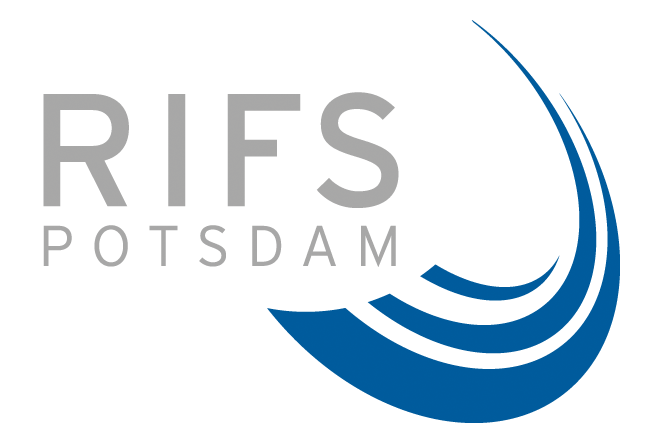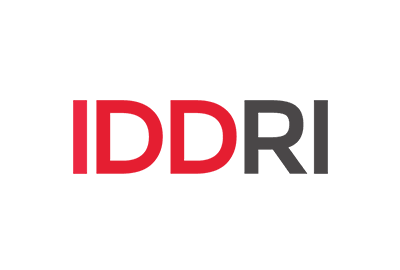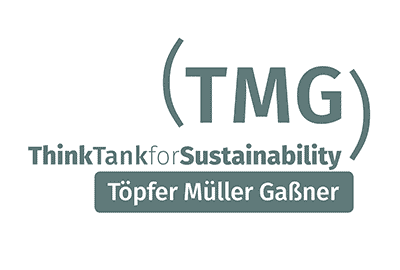The Marine Regions Forum project receives strategic advice from a high level international Advisory Board. The Advisory Board guides the development of the Marine Regions Forum regarding topics, regional focus areas, and formats of the forum. The Advisory Board helps to establish links between the Marine Regions Forum and key international ocean governance processes.
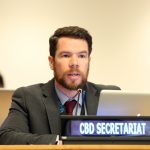
Joseph Appiott is the coordinator of the marine, coastal and islands biodiversity programmes of work at the Secretariat of the Convention on Biological Diversity (CBD). At the CBD Secretariat, Joseph works with governments, international organizations and other stakeholders to facilitate the implementation of the Convention and the achievement of global goals for biodiversity. This work includes facilitating the description and mapping of ecologically or biologically significant marine areas (EBSAs), coordinating capacity building activities, and synthesizing scientific and technical advice related to pressures on marine biodiversity (e.g., underwater noise, marine debris) and planning/management tools (e.g., marine spatial planning, area-based management). Joseph’s work also includes coordination with, and input to, other UN agencies and multilateral processes with regards to issues related to marine and coastal biodiversity. Joseph has a Ph.D. and M.S. in Marine Policy from the University of Delaware, and a B.S. in Marine Biology from the University of Miami.
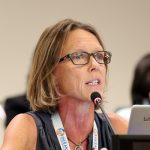
Jessica Battle is Senior Global Ocean Governance and Policy Expert at WWF, and has been working at WWF Oceans since 2002. She is a highly experienced programme manager and strategic thinker, with extensive high-level policy advocacy and communications experience. She is passionate about reforming how ocean decisions are made – from short termism to people-centred, long term and integrated management. Right now, she is working on SDG implementation, promoting a sustainable Blue Economy, the nexus between oceans and climate change, and influencing a new high seas biodiversity agreement at the UN. She is trained in science, policy, communications and ocean law, with experience in international development. Prior to working at WWF, she worked as editor and writer in a Swedish communications firm, and as a research assistant in Zanzibar, Tanzania.

Julian Barbiere is head of Marine Policy and Regional Coordination Section at the Intergovernmental Oceanographic Commission of UNESCO. Educated as an environmental scientist, he has approximately 20 years of experience at the international level in the field of ocean sustainability, ocean governance and the implementation of ecosystem-based management approaches at various geographical locations. He is the lead person responsible for Sustainable Development and Ocean at the IOC Secretariat, and is known in the UN and outside of UN for his contribution to ocean ecosystem management. Working at the interface of science and policy, he has led a number of UN initiatives, such as the Assessment of Assessments (Pre-conception phase of the UN Regular Process -2006-2009 together with UNEP), the overall coordination of the inter-agency publication: Blueprint for Ocean Sustainability, in preparation to Rio+20 (2012, with FAO, IMO, and UNDP), the development of international guidelines on Marine Spatial Planning, the development of the Agenda 2030 and its related Sustainable Development Goal 14. He is currently implementing the overall SDG 14 strategy for the IOC and was instrumental in the proclamation of the UN Decade of Ocean Science for Sustainable Development at the end of 2017 for which he is the focal point at IOC.

Meg Caldwell is the Deputy Director, Oceans at the Packard Foundation’s Conservation and Science program. She leads the Oceans team where she manages growth in the scale and ambition of oceans-related grant-making, provides strategic direction across our subprograms, fosters the increasingly team-oriented approach to this work, and helps to amplify the work of the Foundation and the grantees as a thought leader on ocean conservation issues. Prior to joining the Foundation, Meg directed the Environmental and Natural Resources Law and Policy Program at Stanford Law School. While at Stanford, she also served as the Executive Director of the Center for Ocean Solutions (COS). Meg played a critical role in the creation of COS and led the organization in the development of a Pacific Ocean-wide assessment of the major threats to marine and coastal ecosystems, along with the communities that depend on them—the first assessment of its kind. She also served as a Senior Consultant to the National Commission on the BP Deepwater Horizon Oil Spill and Offshore Drilling. The Commission ultimately adopted a majority of the recommendations for regulatory reform that were developed by COS. Meg served on the California Coastal Commission from 2004-2007 and 2009-2012, including two years as its chairperson, during which time she also served on the board of the California Coastal Conservancy. Before joining the Stanford Law School faculty in 1994, Meg was an instructor at San Jose State University; an associate in the environmental law group of McCutchen, Doyle, Brown & Enersen; and a Policy Analyst with the U.S. Environmental Protection Agency in San Francisco. Meg holds a Bachelor’s in Science in business administration (with an emphasis on economic analysis and policy) from the University of California at Berkeley and a J.D. from Stanford Law School.
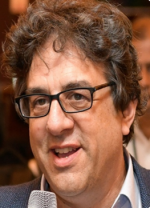
Darius Campbell is the Secretary of the North East Atlantic Fisheries Commission. The Commission aims to provide sustainable economic, environmental and social benefits through the long-term conservation and optimum utilisation of the fishery resources in its Convention Area. Before this Darius was the Executive Secretary for the OSPAR Commission, an intergovernmental organisation aiming to protect and conserve the North East Atlantic and its resources. Previously Darius worked for the UK’s Department for Environment Food and Rural Affairs as a Deputy Director responsible for issues such as the National Climate Change Adaptation Programme, UK policy on marine environment, and international oceans governance issues including illegal fishing. Before joining the UK Civil Service, Darius worked in international development in Jordan, Nigeria and India. His first degree was in zoology, followed by an MSC in Livestock production and a PhD in nomadic livestock systems in Nigeria.
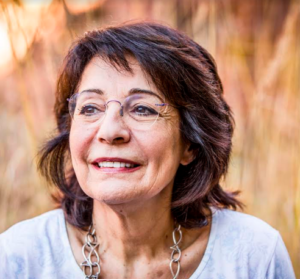 Maria Damanaki has over 30 years of public service experience in Europe. Under her leadership, as a European Union Commissioner for Maritime Affairs and Fisheries, the Commission introduced a new Common Fisheries Policy that brought fish populations back to healthier levels – from as few as five sustainable stocks in 2010 to up more than 30 today. She led the global oceans program at The Nature Conservancy as global managing director for oceans, where her team focused on sustainable fisheries management, implementation of mapping ocean wealth, marine spatial planning and large-scale protection of ecosystems. Ms Damanaki, the last years is acting as an independent consultant in global organisations, for the sustainably use of the oceans and the marine resources. She is serving as a principal advisor for SYSTEMIQ (London), the Paradise Foundation (China) and Rockefeller Brothers Foundation (USA). She is a member of the Friends of Ocean Action of the World Economic Forum. She co-chairs the network of the High-Level Ocean Panel and she sits on the Boards: Monaco Ocean Foundation and Oceanographic Institute, European Marine Regions Forum (Berlin), Global Fishing Watch – Partnership of Google and Oceana, Marine Stewardship Council (MSC) (London), Global Fund for Coral Reefs (GFCR) (New York).
Maria Damanaki has over 30 years of public service experience in Europe. Under her leadership, as a European Union Commissioner for Maritime Affairs and Fisheries, the Commission introduced a new Common Fisheries Policy that brought fish populations back to healthier levels – from as few as five sustainable stocks in 2010 to up more than 30 today. She led the global oceans program at The Nature Conservancy as global managing director for oceans, where her team focused on sustainable fisheries management, implementation of mapping ocean wealth, marine spatial planning and large-scale protection of ecosystems. Ms Damanaki, the last years is acting as an independent consultant in global organisations, for the sustainably use of the oceans and the marine resources. She is serving as a principal advisor for SYSTEMIQ (London), the Paradise Foundation (China) and Rockefeller Brothers Foundation (USA). She is a member of the Friends of Ocean Action of the World Economic Forum. She co-chairs the network of the High-Level Ocean Panel and she sits on the Boards: Monaco Ocean Foundation and Oceanographic Institute, European Marine Regions Forum (Berlin), Global Fishing Watch – Partnership of Google and Oceana, Marine Stewardship Council (MSC) (London), Global Fund for Coral Reefs (GFCR) (New York).
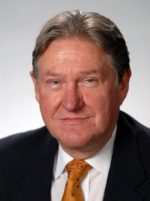
David Freestone (LL.D.) is Executive Secretary of the Sargasso Sea Commission, established in 2014 pursuant to the Hamilton Declaration on Collaboration for the Conservation of the Sargasso Sea, which now has ten Signatory Governments. The Secretariat is housed in the North American office of IUCN in Washington DC. From 1996-2008 he worked at the World Bank in Washington DC, first as head of the International and Environmental Law Group and from 2004-08 was Deputy General Counsel and Senior Adviser in the Office of the General Counsel. He is Visiting Scholar and Professorial Lecturer at The George Washington University Law School in Washington D.C. He has written widely on the Law of the Sea and international environmental law, and is the founder and Editor-in-Chief of the International Journal of Marine and Coastal Law (now in its 33rd year).

Fredrik Haag is Head of the Office for the London Convention/Protocol and Ocean Affairs at the International Maritime Organization. He has a background in applied environmental research, focusing on marine and coastal zone management, and holds several postgraduate degrees; an MSc in Earth Sciences and a Licentiate of Philosophy (Phil. Lic.) in Environmental Impact Assessment from Uppsala University, Sweden, as well as a Master in Maritime Affairs from the World Maritime University. Fredrik joined IMO in 2006, and represents IMO in several UN wide processes, and has been deeply involved in matters related to the 2030 Agenda for Sustainable Development and the SDGs, Biodiversity in Areas Beyond National Jurisdiction (BBNJ), as well as the Joint Group of Experts on Scientific Aspects of Marine Environmental Protection (GESAMP). As head of the Office, his primary task is to support the implementation of the London Convention and Protocol on dumping of wastes and other matters at sea, but he is also involved in IMO’s work on PSSAs, marine litter, noise and ship-strikes. He has also contributed to work on GHG emissions from ships and Ballast Water Management.

Lorna Inniss is the Coordinator, UN Environment’s Secretariat of the Cartagena Convention for the Protection and Development of the Marine Environment of the Wider Caribbean Region. A national of Barbados, Dr Inniss has over 25 years of experience in the management of coastal ecosystems in the Caribbean. She was the Acting Director of the Coastal Zone Management Unit in Barbados for four years, and Deputy Director for the 10 years prior. Her qualifications include a Bachelor of Science in Biology with honors from the University of the West Indies (UWI), a Master of Science degree in Environmental Planning and Management, a post-graduate diploma in Business Management, as well as a Doctorate in Oceanography and Coastal Sciences from Louisiana State University, USA. She served as the first elected Chair of the UN Intergovernmental Coordination Group for the Caribbean Tsunamis and Coastal Hazards Warning System from 2008-2012. She also chaired the Advisory Board of the Regional Sub-Commission of the Intergovernmental Oceanographic Commission of UNESCO (IOCARIBE), and was one of two Joint Coordinators of a Group of Experts established by the United Nations General Assembly to deliver the first Integrated Global Ocean Assessment.
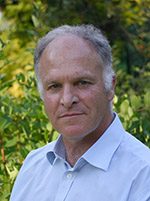
David Johnson trained as a physical geographer and completed an MSc in Recreational Land Management (National Parks) in 1982. He spent time as a Royal Navy officer (hydrography, fishery protection), co-ordinated practical conservation work (habitat restoration), and practised as an independent environmental consultant (EIAs, environmental auditing, corporate social reporting). In 1992 he joined Southampton Solent University as a Senior Lecturer in marine resource management, becoming first Head of the Maritime Studies Department and in 2003 Professor of Coastal and Ocean Management. He completed his PhD on the ecosystem goods and services of intertidal wetlands in 1998 and was a short-term Caird Fellow of the UK National Maritime Museum in 2002. In 2006, David was appointed as Executive Secretary to the OSPAR Commission, the international convention for the environmental protection of the North-East Atlantic. This role confirmed him as a leading expert in global ocean policy. He was intensively involved in the production of the OSPAR Quality Status Report 2010 and subsequent regional implementation of the EU Marine Strategy Framework Directive.
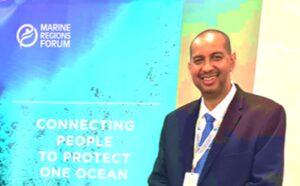
Dr. Aboud S. Jumbe is the Principal Secretary at the Ministry of Blue Economy and Fisheries, Zanzibar, in the United Republic of Tanzania. Dr. Jumbe has been involved in various dialogue and development processes in the implementation of Ocean Governance, Blue Economy & Marine Spatial Planning processes, focusing on the Western Indian Ocean (WIO) and the UNEP Nairobi Convention Area. Moreover, Dr. Jumbe has also taken part in programs related to Blue Economy initiatives in the WIO region supported by the Indian Ocean Commission (IOC), United Nations’ Economic Commission for Africa’s (UNECA), Indian Ocean Rim Association (IORA) and UNDP. Under the UNEP Nairobi Convention, Dr. Jumbe has participated in various Marine Regions Forums initiative, and the aspirations to develop an Ocean Governance Strategy across the Regional Seas Programs – creating an effective and multilateral partnership for a future management of Areas Beyond National Jurisdiction, especially in the Western Indian Ocean Region. Dr Jumbe holds BSc. Degree (General) Botany, Chemistry and Zoology from the University of Delhi (2000). He also holds MSc. and PhD Degrees, respectively, in Environmental Sciences, from the University of Bangalore (India).

Markus Knigge is Executive Director of the Blue Action Fund which supports non-governmental organizations in their efforts to conserve the oceans and coastlines in the developing world. In that capacity, Markus has overall responsibility for implementing and evaluating the grant programme, as well as for managing day-to-day operations. Prior to Blue Action Fund, Markus worked in various positions for the Pew Charitable Trusts where he built up the European Marine Program and led Pew’s efforts to end overfishing in the EU. He also worked as EU Marine Programme Officer with the WWF European Policy Office and as a senior fellow with the Ecologic Institute in Berlin and Brussels. As a scholar of the German Academic Exchange Service, Markus graduated with distinction from the School of Advanced International Studies at Johns Hopkins University with a master’s degree in international affairs and international economics. Prior to that, he received the equivalent of a master’s degree in urban and regional planning from Technische Universität Berlin, Germany.
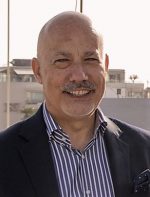 Gaetano Leone is the Coordinator of the UNEP Mediterranean Action Plan-Barcelona Convention Secretariat, based in Athens, Greece since June 2014. He has strong and diverse experience of political and inter-organizational affairs, inter-governmental processes, leadership and management, and partnerships, especially in the field of sustainable development. A national of Italy, Gaetano Leone graduated in Political Sciences and specialized in International Relations. In 1988, after 3 years as a manager in the private sector, he joined the United Nations. Since then, he has covered UN assignments of increasing responsibility in several African and European countries and in the USA. These include work for several UN agencies and programmes (United Nations Development Programme – UNDP, Unicef, UN-Habitat and currently United Nations Environment Programme – UNEP), and at the World Bank. From 2010-2014, he was Deputy Secretary of the United Nations Intergovernmental Panel on Climate Change (IPCC).
Gaetano Leone is the Coordinator of the UNEP Mediterranean Action Plan-Barcelona Convention Secretariat, based in Athens, Greece since June 2014. He has strong and diverse experience of political and inter-organizational affairs, inter-governmental processes, leadership and management, and partnerships, especially in the field of sustainable development. A national of Italy, Gaetano Leone graduated in Political Sciences and specialized in International Relations. In 1988, after 3 years as a manager in the private sector, he joined the United Nations. Since then, he has covered UN assignments of increasing responsibility in several African and European countries and in the USA. These include work for several UN agencies and programmes (United Nations Development Programme – UNDP, Unicef, UN-Habitat and currently United Nations Environment Programme – UNEP), and at the World Bank. From 2010-2014, he was Deputy Secretary of the United Nations Intergovernmental Panel on Climate Change (IPCC).
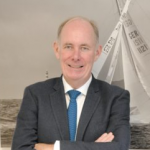
Ronán Long is the Director of the WMU-Sasakawa Global Ocean Institute at the at the World Maritime University (WMU) in Malmö, Sweden, and holds the Nippon Foundation Chair in Ocean Governance and the Law of the Sea. He is the author/co-editor of 12 books and over 100 scholarly articles on oceans law and policy. He read for his PhD at the School of Law Trinity College Dublin has been a Senior Visiting Scholar-in-Residence at the University of California, Berkeley, and a Visiting Scholar at the Center Oceans Law and Policy at the University of Virginia. He teaches on the Law of the Sea programme at Harvard Law School. Prior to his academic career, he was a permanent staff member at the European Commission and undertook over 40 missions on behalf of the European Institutions to the Member States of the European Union, the United States of America, Canada, Central America as well as to African countries. During his previous career in the Irish Naval Service, he won an academic prize at Britannia Royal Naval College and held a number of appointments ashore and afloat, including membership of the Navy’s elite diving unit.

Rashid Sumaila is Professor and Director of the Fisheries Economics Research Unit, Institute for the Oceans and Fisheries & School for Policy and Global Studies, University of British Columbia. He specializes in bioeconomics, marine ecosystem valuation and the analysis of global issues such as fisheries subsidies, illegal fishing, climate change and oil spills. Sumaila is widely published, with over 230 articles in peer-reviewed journals, including Science, Nature and the Journal of Environmental Economics and Management. Sumaila has won a number of awards such as the 2017 Volvo Environment Prize; the 2017 Benchley Oceans Award in Science, the 2016 UBC Killam Research Prize, and the 2013 American Fisheries Society Excellence in Public Outreach Award, the Stanford Leopold Leadership Fellowship and the Pew Marine Fellowship. Sumaila was named a Hokkaido University Ambassador in 2016.
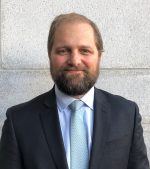
Kristian Teleki has more than two decades of strategic and senior management experience in the areas of ocean policy and science, environment, sustainability and development. He has broad international high-level experience in more than 35 countries, negotiating and managing projects in the public and private sectors. In addition to serving as director of the Sustainable Ocean Initiative at WRI, Kristian is head of the Friends of Ocean Action for the World Economic Forum and the Head of the Secretariat to the High Level Panel for a Sustainable Ocean Economy. Until early 2018, he was the senior marine adviser to the Prince of Wales’s International Sustainability Unit, and the director of engagement for the Ocean Unite network, an initiative of the non-profit arm of the Virgin Group. From 2012 to 2016, he was the director of global engagement at the Global Ocean Commission. Kristian has also served as vice president of SeaWeb (2009-2012), where he was responsible for sustainable-markets, science, and Asia-Pacific programmes, head of the marine programme at UNEP – World Conservation Monitoring Centre (2006-2009), and director of the International Coral Reef Action Network (2001-2009).
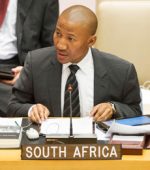
Dire Tladi is professor of international law at the University of Pretoria and an extraordinary professor at the University of Stellenbosch. He has served as the Principal State Law Adviser for International Law for the South African Department of International Relations and Cooperation and the South Africa Permanent Mission to the United Nations. His main academic specializations are in public international law. On 1 January 2012, he commenced his five-year term as member of the International Law Commission and was re-elected in 2016. At the ILC, he is Special Rapporteur for the topic Peremptory Norms of General International Law. He is also a member of the Institut de Droit International.
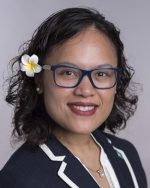
Ambassador Ngedikes Olai Uludong is the Ambassador Extraordinary and Plenipotentiary Permanent Representative of Palau to the United Nations. Prior to her current appointment, H.E. Ms. Ngedikes Olai Uludong served as Palau’s Ambassador to the European Union and Belgium. Serving concurrently as Ambassador on Climate Change and Permanent Representative of Palau to the Food and Agriculture Organization of the United Nations, she was the lead negotiator for the Alliance of Small Island States on the United Nations Framework Convention on Climate Change from 2012 to 2014. She holds a Master of Science Degree in Climate Change from the University of the South Pacific.
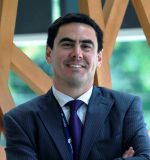
Osvaldo Urrutia is a Professor on public international law at the Faculty of Law, P. Universidad Catolica de Valparaiso in Chile. He was previously the Chairperson of the Commission of the South Pacific Regional Fisheries Management Organisation (SPRFMO) and before that he successfully fulfilled the role of Chairperson of the SPRFMO Compliance and Technical Committee. He served for nearly a decade as legal and policy adviser for the Government of Chile in the area of international fisheries and Law of the Sea. He is also a lecturer at the Faculty of Law of the Pontificia Universidad Católica de Valparaíso (PUCV) in Valparaiso, Chile. Mr. Urrutia is currently based in Wellington, New Zealand.

Ambassador Méntor Villagómez, current Secretary General of the Permanent Commission for the South Pacific, is a career diplomat with the Ecuadorian Foreign Service for more than forty five years. He has a Doctor’s degree in Jurisprudence from the Pontifical Catholic University of Ecuador, a Master’s Degree in Business Management from the Institute of Business Development of Quito, as well as various Diplomas in international studies from The Hague International Law Academy, Georgetown University and University of Texas at Dallas. He is fluent in Spanish, English and French. He has been Ecuador’s Foreign Trade vice Minister and Chief Trade Negotiator. He has also served as Ambassador to the European Union, Belgium, Luxemburg, India, Bangladesh, Sri Lanka and Nepal. He is married with three children and four grandsons and lives in Guayaquil, Ecuador.
